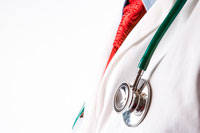The following is a press release from Public Health – Seattle & King County:
Public Health – Seattle & King County is investigating a new confirmed measles case in a King County resident, a male child, with possible public exposures at Sea-Tac Airport. The infection was likely acquired while traveling outside the United States.
“Measles outbreaks continue to circulate in many areas of the world. As long as people travel, no community is safe from measles introductions,” said Jeff Duchin, Health Officer for Public Health – Seattle & King County. “Measles vaccine is safe, effective, and offers excellent protection. If you aren’t sure if you’re up to date with the recommended doses of measles, mumps, and rubella vaccine (MMR), see your health care provider and get a dose of MMR if needed.
“During our COVID-19 pandemic, it’s important to stay up-to-date on all scheduled vaccinations for children, so we don’t lose important community protections against other serious infections.”
LOCATION OF POTENTIAL EXPOSURE TO THE PUBLIC
Transmission of measles can occur before people know they have the disease, before any rash appears. Before the measles diagnosis was made, the child was confirmed to be at Sea-Tac Airport, North Satellite (Gate N-11) to Baggage Claim (Carousel 13), on Nov. 5 from 10 p.m. to 12:30 a.m.
These times include the period when the individual was at the location and two hours after. Measles virus can remain in the air for up to two hours after someone infectious with measles leaves the area. Anyone who was at these locations during the times listed could have been exposed to measles.
WHAT TO DO IF YOU WERE IN A LOCATION OF POTENTIAL MEASLES EXPOSURE
Most people in our area have immunity to the measles through vaccination, so the risk to the general public is low. However, anyone who was in the locations of potential exposure to measles around the times listed below should:
Find out if you have been vaccinated for measles or have had measles previously. Make sure you are up-to-date with the recommended number of measles (MMR) vaccinations.
Call a healthcare provider promptly if you develop an illness with fever or illness with an unexplained rash. To avoid possibly spreading measles to others, do not go to a clinic or hospital without calling first to tell them you want to be evaluated for measles.
Vaccination or medication can be given after exposure in some cases to prevent illness – check with your healthcare provider. This is especially important for people at high risk for measles complications.
Everyone should stay up-to-date with measles and other routine vaccinations during the ongoing COVID-19 outbreak, to keep our community protected against other serious infections.
Measles symptoms could appear starting from seven days after the first exposure to twenty-one days after the last exposure to someone with measles. Rash is most likely to appear a few days after the fever, ten to twelve days after an exposure.
ABOUT MEASLES
Measles is a highly contagious and potentially severe disease that causes fever, rash, cough, and red, watery eyes. It mainly spreads through the air after a person with measles coughs or sneezes.
Measles is contagious from approximately four days before the rash appears through four days after the rash appears. People can spread measles before they have the characteristic measles rash.
Measles complications can include ear infections, diarrhea, pneumonia, and rarely, encephalitis (brain inflammation). Anyone could have serious measles complications, but of particular concern are infants and children under five years, pregnant women, and people with weakened immune systems from drugs or underlying disease. If you are in one of these high-risk groups and were exposed to measles, be sure to contact your health care provider to discuss the need for treatment to prevent measles infection.
Measles is preventable with the safe and highly effective measles, mumps and rubella (MMR) vaccine. According to the Centers for Disease Control and Prevention (CDC), two doses of the MMR vaccine are more than 95 percent effective in preventing measles and that protection is long lasting.
For more information about measles and measles vaccination, including where to get measles vaccinations: www.kingcounty.gov/measles


